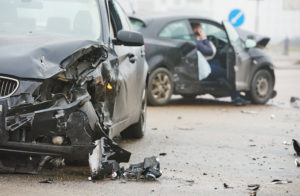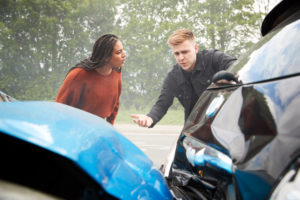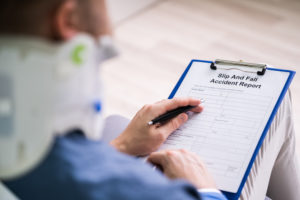Who Is Liable in a Rear-End Accident?
Many people share the common misconception that fault automatically goes to the second driver in a rear-end collision. After all, it is the following driver’s responsibility to keep a safe distance and pay attention to the road to brake on time. Yet this generalization does not apply to all rear-end accidents in Virginia. Some involve shared liability between both drivers. Others involve third-party liability, such as that of a product manufacturer. Understanding who could be liable for your rear-end accident may take help from a Richmond car accident attorney.
The Rear Driver
Many rear-end accidents come down to the fault of the second driver, or Driver B. In Virginia, all drivers have the duty to keep a safe following distance. The general standard is to keep one car’s length of space between the front of one vehicle and the rear of another. Keeping enough distance lends the ability to hit the brakes before crashing into the back of the front vehicle (Driver A) if that vehicle stops. Driving too closely to Driver A, or tailgating is an act of negligence that could lead to Driver B’s liability for a rear-end collision.
Driver B may also be responsible for an accident if he or she contributed to it through negligence such as ignoring brake problems. If Driver B knew his or her brakes needed replacing months ago, for example, yet failed to do so, that driver might be liable for the rear-end collision if bad brakes contributed to the crash. Driver B could also be responsible if his or her bad driving caused the crash, such as making an unsafe lane change or driving distracted. In all these scenarios, the fault would most likely fall to Driver B for the rear-end collision.
For a Free Legal Consultation
Call The Personal Injury Lawyer Hotline.
804-250-5050
The Front Driver
The front driver in a rear-end collision, Driver A, may be responsible in certain circumstances. If Driver A engaged in a dangerous driving practice, such as an unsafe merge, slamming on the brakes or driving erratically, that driver could be responsible for a subsequent rear-end collision. Driver A could also be liable if his or her vehicle had broken brakes or taillights, making it difficult for Driver B to tell the vehicle was stopping.
In Virginia, two drivers cannot share fault for a collision. Virginia is one of only a few contributory negligence states, meaning one party’s negligence – to any degree – will bar that person from financial recovery. To receive compensation for a car accident, therefore, the victim will have to prove 100% of the fault rested with the other driver. Even 1% of fault allocated to the victim could bar him or her from recovery.
Let the Heavy Hitters® Take On Your Case 804-250-5050
Third Parties
Although uncommon, some rear-end accidents in Virginia involve third-party negligence. A third party is a person or entity not directly involved in the crash. A third party such as the city or the car manufacturer could bear fault for the accident if it contributed in some way. If you struck the vehicle in front of you because of defective brakes, for example, the manufacturer of the brakes could be liable. Claims involving defective parts typically apply the legal theory of strict liability, meaning you would not have to prove the manufacturer’s negligence. As long as your lawyer could show the part contained a defect, and this defect caused the car accident, you could likely receive compensation from the part manufacturer.
If a roadway defect such as a pothole, construction site, uneven shoulder or debris in the road substantially contributed to your rear-end accident, the entity in charge of roadway maintenance could be liable. This is generally the city or state on a public roadway. Both drivers could file claims against the government for negligently failing to maintain the roadway. To find out who might be liable for your recent rear-end accident, speak to an attorney in Virginia. These cases can be complex and difficult to prove.
The Pendleton Law Team Is Here For You 804-250-5050



